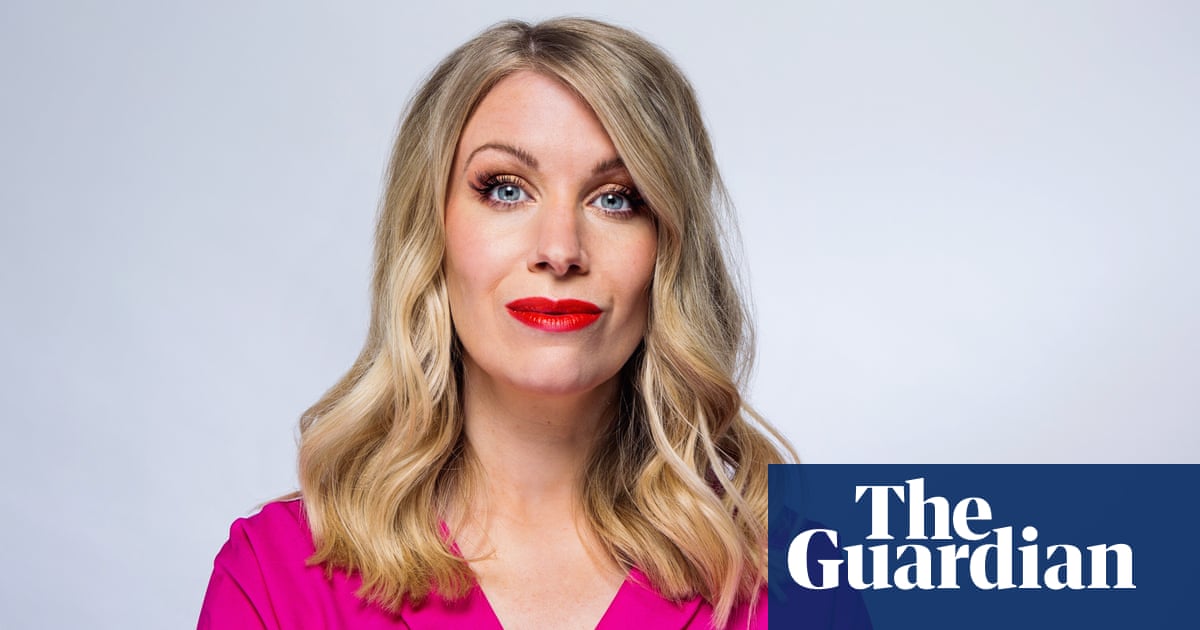
randon Blackwell, from Queens in New York, had never left his home country when he decided he wanted to win a British quiz show. An enthusiastic quizzer since he was a child, he knew Britain had “the greatest quiz infrastructure in the world”, but had only heard of one programme: Mastermind.
On trying to apply, however, he realised that he would need to be a UK resident, and since he was planning to study for a master’s anyway, he decided to look for courses in Britain. “But it turns out, if you Google [quizzes] and university, a show called University Challenge comes up. So I watched a couple of episodes on YouTube and thought: oh, this is way easier to prepare for.”
On Monday, TV viewers saw Blackwell and his team from Imperial College London lift this year’s University Challenge trophy, following a thrilling and highly impressive romp through the competition’s rounds during which the American, dressed in a series of statement sweatshirts, emerged as the charismatic star.
The final was no exception. Answering questions on subjects as diverse (and devilish) as the Polish journalist Ryszard Kapuściński, doric architecture and languages of the Afro-Asiatic family, the Imperial team swept aside their opponents from Corpus Christi College, Cambridge.
Blackwell greeted the win not with air punches and hugs but with a satisfied little smile and nod, as he had marked correct answers throughout the series. In a programme where even this counts as wildly demonstrative celebration, however, it has earned him inevitable flak on social media, with some viewers interpreting his grimaces and eye rolls as disrespect or arrogance.
Speaking on the phone from back home in Queens, however, where he lives with his mother and grandmother, Blackwell, now 26, is charming, funny and eager, above all, to pay tribute to his three teammates, who he insists would have “killed it” on the programme even without him.
The misapprehensions are due to cultural differences, he says, pointing out that his own friends and family back in New York have had the opposite reaction. “People I know have been like: ‘How can you watch this show? It’s so boring, they are all robots.’ And I’m like: ‘It’s the other way round. Everyone is complaining about me showing any emotions.’ I find it funny.”
Some of the flak he has received throughout his career is racially charged. He is one of very few black quizzers, one of the reasons why he is committed to quiz teams being more diverse. Eyebrows have been raised about the two all-male teams in Monday’s final. “If the trials were fair, and everybody felt they could try out, the questions were fair and it happened to be an all-male final, then that’s fine.” But some university selection procedures aren’t fully open, he argues, and many women and minorities are intimidated about applying, knowing the abuse other female contestants have received on social media.
“That’s what the problem is, because representation does matter.” He’s had a few tweets which “really hurt”, from the parents of teenage girls lamenting that no one on the final looks like them. “And it stinks – it really really does stink.”
What does he love about quizzing? “I mean, it’s just what I spend most of my time doing. I guess I like the challenge of it. I’m just very competitive, period.”
Blackwell is a TV quiz veteran in the US, where he first appeared on Teen Jeopardy at the age of 14. Appearances on Who Wants to Be a Millionaire? and The Million Second Quiz mean he has earned more than $460,000 (£370,000) on TV alone. “I always joke that the US is good money, bad questions, and the UK is good questions, bad money,” he says. University Challenge, of course, has no monetary prize.
He would love to complete Britain’s “big four”, he says – listing Only Connect, Mastermind and Brain of Britain as his other fantasy targets – but for now he is focusing on “training” himself – “continuing to play some quizzes, winning some, mostly losing some, but most of all getting closer and closer to those top players”.
Successful teams might be intimidatingly bright, but they have worked incredibly hard at their diverse knowledge, he insists. Since returning to the US he has been waiting to start a job – now delayed thanks to coronavirus – which he is reluctant to jinx by saying too much about. “So now, with quarantine, I’ve been training non-stop.”












